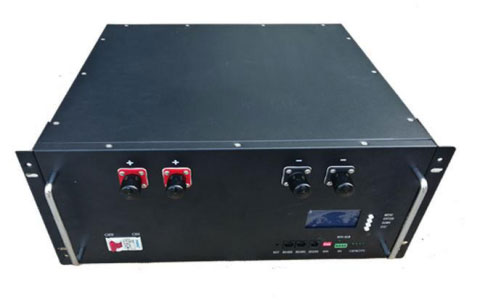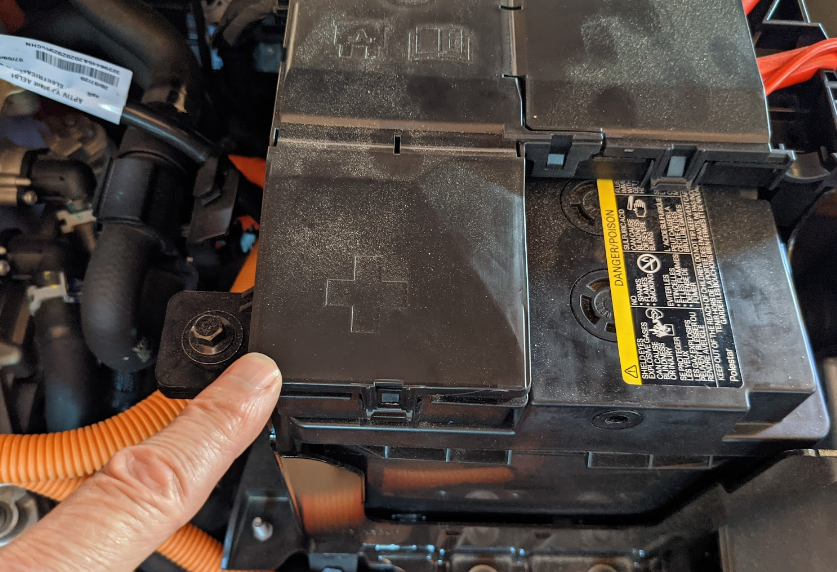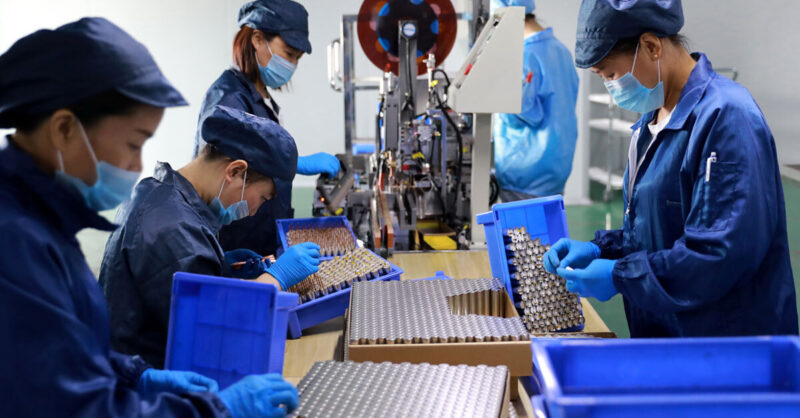How a China Lithium Starter Battery Supplier Can Help Boost Your Vehicle’s Performance
China Lithium starter battery suppliers can offer a range of benefits to vehicle owners looking for an upgrade from traditional lead-acid batteries. Lithium starter batteries have been gaining popularity in recent years due to their superior performance and durability, and China is quickly becoming a leading supplier of these advanced batteries.
Here are some ways in which a China Lithium starter battery supplier can help boost your vehicle’s performance:
Lightweight and Compact Design: Lithium starter batteries are significantly lighter and more compact than traditional lead-acid batteries. This means that they can reduce the overall weight of your vehicle, leading to improved fuel efficiency and handling.
Increased Power and Performance: Lithium starter batteries are capable of delivering higher levels of power and performance compared to traditional lead-acid batteries. This means faster engine starts, more consistent power output, and improved overall performance.
Improved Reliability: Lithium starter batteries are known for their high reliability and long service life. They are less prone to failure due to internal corrosion or other issues that can affect traditional lead-acid batteries, ensuring that your vehicle starts when you need it to.
Environmentally Friendly: Lithium starter batteries are more environmentally friendly than traditional lead-acid batteries, as they do not contain toxic chemicals and are easier to recycle. This makes them an ideal choice for eco-conscious vehicle owners.
Cost-Effective: While lithium starter batteries may have a higher upfront cost compared to traditional lead-acid batteries, their longer service life and improved performance can ultimately result in cost savings over time. This makes them a cost-effective choice for those looking to upgrade their vehicle’s battery.
By partnering with a reputable China Lithium starter battery supplier, you can ensure that you are getting high-quality batteries that meet your specific needs and requirements. A good supplier will offer a range of battery sizes and specifications to fit a variety of vehicles, and should be able to provide technical support and guidance throughout the purchasing and installation process.
Time: 2023-7-25
Introduction: The increasing demand for electric vehicles (EVs) and the need for sustainable transportation solutions have driven researchers and engineers to develop innovative power sources. One such revolutionary power source is the Lithium Van Battery, which promises to overcome the limitations of current battery technologies and pave the way for a future dominated by EVs. This article explores the features, advantages, and potential impact of the Lithium Van Battery. 1. The Need for Advanced Battery Technologies: As the world transitions towards a greener future, EVs have emerged as a promising alternative to conventional combustion engine vehicles. However, the success and wider adoption of EVs heavily rely on advancements in battery technologies. Current lithium-ion batteries, although efficient, face challenges such as limited energy density, long charging times, and concerns over the availability and sustainability of raw materials. The Lithium Van Battery represents a potential breakthrough in these areas. 2. Features and Working Mechanism: The Lithium Van Battery employs vanadium compounds as an active material for the cathode, instead of conventional lithium cobalt oxide or lithium iron phosphate. This unique composition offers several advantages. First, vanadium enables higher energy density, allowing for longer driving ranges without frequent recharging. Second, it exhibits fast charging capabilities, significantly reducing the time required to charge the battery. Third, vanadium compounds are abundant and widely available, ensuring a sustainable and stable supply chain. 3. Enhanced Safety and Durability: Safety is a critical concern for battery-powered vehicles. Lithium Van Batteries have demonstrated improved safety features...
Time: 2023-8-14
Introduction: In today's fast-paced world, where technology is an integral part of our daily lives, the need for reliable and long-lasting power solutions has become more important than ever. The emergence of lithium batteries has revolutionized the energy storage industry by providing efficient and durable power sources. Among them, the 100Ah LiFePO4 lithium battery stands out as an exceptional choice due to its impressive features and capabilities. In this article, we will explore the various aspects of this battery and highlight its significance in the ever-evolving energy landscape. Unmatched Energy Density: One of the most notable attributes of the 100Ah LiFePO4 lithium battery is its outstanding energy density. With a capacity of 100 ampere-hours (Ah), this battery offers a substantial amount of stored energy that can be utilized for extended periods. Compared to traditional lead-acid batteries, the LiFePO4 lithium battery provides significantly higher energy density, allowing for more power to be stored in a smaller and lighter package. Enhanced Safety: Safety is a paramount concern when it comes to energy storage systems. The 100Ah LiFePO4 lithium battery addresses this concern by incorporating advanced safety features. Unlike other lithium-ion batteries, LiFePO4 batteries are inherently stable and less prone to thermal runaway or fire hazards. They have a higher thermal stability, mitigating the risk of overheating and ensuring a safer operation. Additionally, LiFePO4 batteries have a longer lifespan, reducing the need for frequent replacements and minimizing environmental impact. Long Cycle Life: The longevity of a...
Time: 2023-4-17
Maintaining your car starter battery is crucial to ensure that your vehicle starts and runs smoothly. The battery is responsible for providing the necessary power to start the engine, and if it fails, you could be stranded with a car that won start. Here are some key tips for maintaining your car starter battery: 1. Keep the battery clean: It important to keep the battery terminals free from corrosion and dirt buildup. This can be done by wiping the terminals with a clean rag or by using a wire brush to remove any buildup. Corrosion can cause electrical resistance, making it difficult for the battery to provide enough power to start the engine. 2. Check the water level: If you have a non-sealed battery, it important to check the water level periodically. If the water level is low, add distilled water until it reaches the proper level. This will help the battery last longer and perform better. 3. Check the voltage: Use a multimeter to test the voltage of the battery. A fully charged battery should have a voltage reading of around 12.6 volts. If the voltage is lower, it may indicate a problem with the charging system, or the battery may need to be replaced. 4. Keep the battery charged: If you don use your car for extended periods, it important to keep the battery charged. A battery that is left discharged for a long time can become damaged and may need to be replaced....
Time: 2023-6-11
A 48v forklift battery charger is a type of charging system designed specifically for electric forklifts that operate on a 48-volt battery. These chargers are an essential component of any electric forklift operation as they ensure that the battery stays charged and ready for use. One of the key benefits of the 48v forklift battery charger is that it is designed to deliver enough power to recharge the battery quickly. This is important because electric forklifts rely on their batteries for power, and if the battery is not charged quickly enough, the forklift may not be able to complete its tasks on time. Additionally, if the battery is not charged properly, it may not last as long as it should, which can lead to costly replacements. Another benefit of the 48v forklift battery charger is that it is designed to be easy to use. Most chargers have a simple interface that allows operators to select the charging mode and monitor the status of the charging process. Additionally, most chargers are designed with safety features that prevent overcharging, which can damage the battery and shorten its lifespan. When selecting a 48v forklift battery charger, it is important to consider a few key factors. The first factor is the charging time. A faster charging time is generally better, as it allows for more efficient use of the forklift. The second factor is the charging capacity. It is important to select a charger that is capable of delivering enough power...
Time: 2023-8-21
In recent years, the concept of smart grids has gained significant attention in the field of energy management. A smart grid is an advanced electrical grid that utilizes digital technology to efficiently manage the generation, distribution, and consumption of electricity. One crucial component of smart grids is the use of lithium batteries, which offer several advantages over traditional lead-acid batteries. In this article, we will explore the benefits of lithium batteries in the context of smart grids. First and foremost, lithium batteries have a higher energy density compared to lead-acid batteries. This means that lithium batteries can store more energy in a smaller and lighter package. This is particularly important in the context of smart grids, as space and weight constraints are often a concern. The higher energy density of lithium batteries allows for more efficient utilization of storage space, making them ideal for installations with limited space availability. Another advantage of lithium batteries is their longer lifespan. While lead-acid batteries typically last around 3-5 years, lithium batteries can last up to 10 years or more. This extended lifespan reduces the need for frequent battery replacements, resulting in lower maintenance and replacement costs for smart grid operators. Moreover, the longer lifespan of lithium batteries contributes to their overall sustainability, as it reduces the environmental impact associated with battery production and disposal. Lithium batteries also offer faster charging and discharging rates compared to lead-acid batteries. This allows for more efficient energy management in smart grid systems. Faster charging...
Time: 2023-8-10
In recent years, there has been a significant increase in the use of mobile robots across various industries and sectors. These robots are designed to perform tasks autonomously, without the need for human intervention. One crucial component that powers these robots and enables them to operate for extended periods is the lithium-ion battery. Lithium-ion batteries have revolutionized the field of robotics due to their high energy density, long cycle life, and lightweight characteristics. These batteries are widely used in various applications, including smartphones, electric vehicles, and now, smart mobile robots. One of the primary advantages of using lithium batteries in mobile robots is their high energy density. Lithium batteries can store a large amount of energy in a small and lightweight package, allowing robots to operate for extended periods without the need for frequent recharging. This high energy density is crucial for robots that need to perform tasks in remote or inaccessible locations, where the availability of power sources may be limited. Another key benefit of lithium batteries is their long cycle life. Lithium-ion batteries can withstand numerous charge and discharge cycles without significant degradation in performance. This is particularly important for mobile robots that are designed to operate in demanding environments and perform repetitive tasks over extended periods. The long cycle life of lithium batteries ensures that these robots can continue to function efficiently and reliably without the need for frequent battery replacements. Furthermore, lithium batteries have a low self-discharge rate compared to other battery...
Time: 2023-5-4
If you're a motorcycle enthusiast, you know that the right battery can make all the difference in your ride. A reliable, long-lasting battery is essential for powering your motorcycle's engine, lights, and other electronics. That's why many riders are turning to LiFePO4 batteries for their motorbikes. LiFePO4 batteries are a type of lithium-ion battery that offer many advantages over traditional lead-acid batteries. They are lighter, more compact, and have a longer lifespan. They also have a higher energy density, which means they can hold more energy in the same amount of space. This makes them ideal for use in motorcycles and other vehicles where space is at a premium. One of the biggest advantages of LiFePO4 batteries is their long lifespan. While a typical lead-acid battery may last only two to three years, a LiFePO4 battery can last up to ten years or more with proper care and maintenance. This means you'll save money in the long run by not having to replace your battery as often. Another advantage of LiFePO4 batteries is their ability to maintain a consistent voltage throughout their lifespan. Lead-acid batteries can lose voltage over time, which can lead to problems with starting your motorcycle or operating its electronics. LiFePO4 batteries, on the other hand, maintain a stable voltage throughout their lifespan, which ensures consistent performance and reliable operation. LiFePO4 batteries are also much lighter than lead-acid batteries, which can make a big difference in the handling and performance of...
Time: 2023-6-25
For those who own a boat or are in the boating industry, the marine starting battery is an essential component that ensures the vessel starts reliably and performs optimally. A reliable starting battery is crucial for peace of mind and safety while out on the water, making it essential to choose the right one for your needs. A marine starting battery is designed to provide a high level of power for starting the engine and powering various onboard equipment. These batteries come in different sizes, shapes, and features, with some designed to handle larger boats and others suitable for smaller vessels. When choosing a marine starting battery, several factors should be considered, including battery type, capacity, voltage, and durability. One of the most common types of marine starting batteries is the lead-acid battery, which is known for its high cranking power and affordable price. These batteries are designed to provide a burst of energy to start the engine, making them ideal for boats with small engines. However, lead-acid batteries require regular maintenance, such as adding water and monitoring the charge level, to ensure they perform optimally. Another type of marine starting battery is the Absorbed Glass Mat (AGM) battery, which is known for its superior performance, durability, and low maintenance. AGM batteries are sealed and do not require adding water, making them an ideal option for those looking for a low-maintenance battery. These batteries are also resistant to vibration, making them suitable for rough waters. When...





















